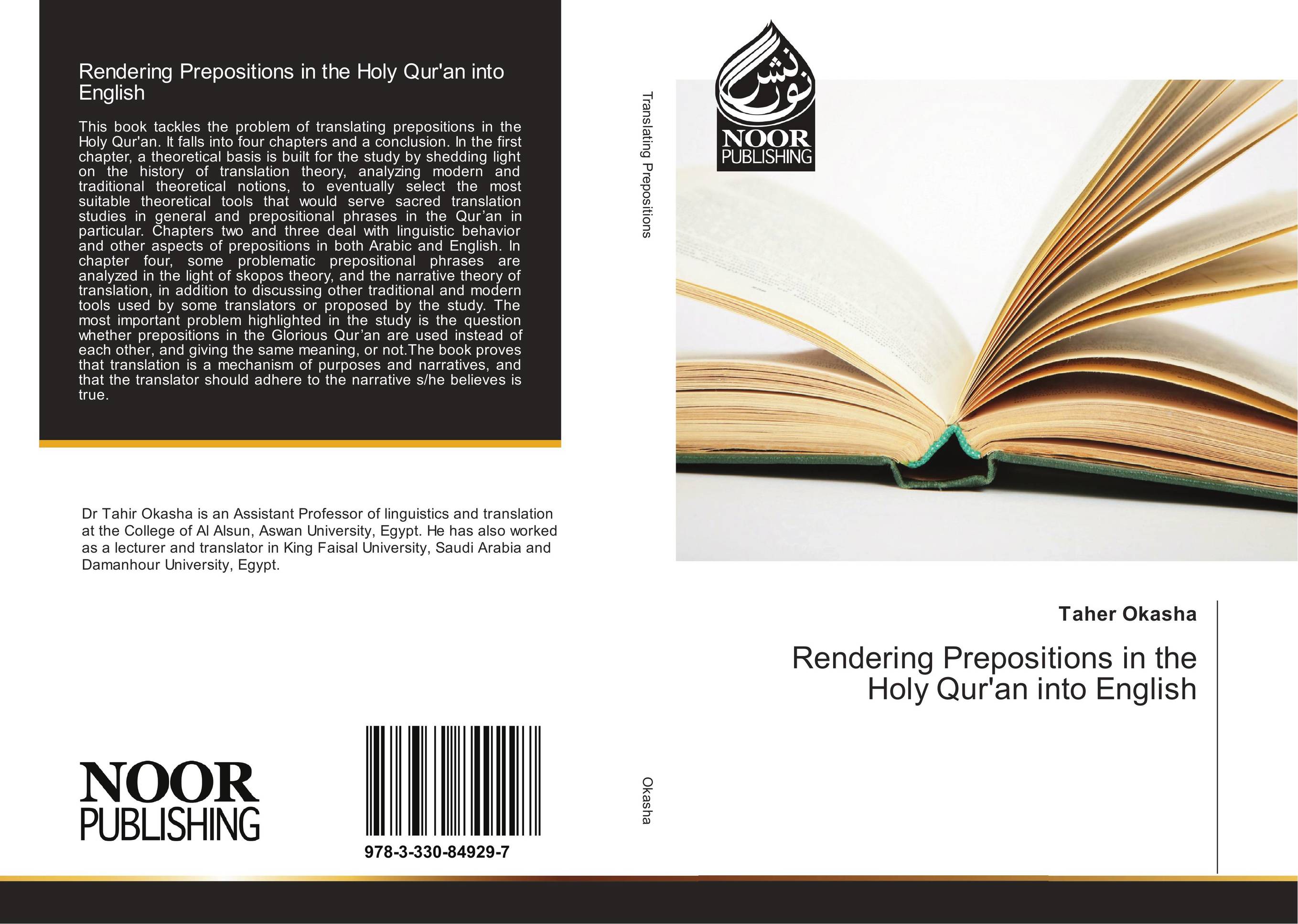| Поиск по каталогу |
|
(строгое соответствие)
|
- Профессиональная
- Научно-популярная
- Художественная
- Публицистика
- Детская
- Искусство
- Хобби, семья, дом
- Спорт
- Путеводители
- Блокноты, тетради, открытки
Rendering Prepositions in the Holy Qur'an into English.

В наличии
| Местонахождение: Алматы | Состояние экземпляра: новый |

Бумажная
версия
версия
Автор: Taher Okasha
ISBN: 9783330849297
Год издания: 2017
Формат книги: 60×90/16 (145×215 мм)
Количество страниц: 220
Издательство: Noor Publishing
Цена: 43412 тг
Положить в корзину
| Способы доставки в город Алматы * комплектация (срок до отгрузки) не более 2 рабочих дней |
| Самовывоз из города Алматы (пункты самовывоза партнёра CDEK) |
| Курьерская доставка CDEK из города Москва |
| Доставка Почтой России из города Москва |
Аннотация: This book tackles the problem of translating prepositions in the Holy Qur'an. It falls into four chapters and a conclusion. In the first chapter, a theoretical basis is built for the study by shedding light on the history of translation theory, analyzing modern and traditional theoretical notions, to eventually select the most suitable theoretical tools that would serve sacred translation studies in general and prepositional phrases in the Qur’an in particular. Chapters two and three deal with linguistic behavior and other aspects of prepositions in both Arabic and English. In chapter four, some problematic prepositional phrases are analyzed in the light of skopos theory, and the narrative theory of translation, in addition to discussing other traditional and modern tools used by some translators or proposed by the study. The most important problem highlighted in the study is the question whether prepositions in the Glorious Qur’an are used instead of each other, and giving the same meaning, or not.The book proves that translation is a mechanism of purposes and narratives, and that the translator should adhere to the narrative s/he believes is true.
Ключевые слова: Narrative theory, Translation, skopos theory, Holy Qur'an



